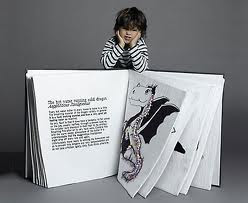 March was a long month, on so, so many levels. One of the benefits, I suppose, was the fact that the length seemed to allow for more reading. And lucky for me, there were some good ones.
March was a long month, on so, so many levels. One of the benefits, I suppose, was the fact that the length seemed to allow for more reading. And lucky for me, there were some good ones.
Eating Animals by Jonathan Safran Foer
267 pages
I would really love to once again ramble on and one about this book, but I already did a prior post, so I'll spare you the details. Foer goes into great deal about factory farming, the cultural side of meat eating, and many other things related to vegetarianism. I have to confess to buying this book for my sister for her birthday, although she made the conversion many years ago.
Verdict: If you don't want to start thinking differently, don't read this book.
An Uncommon Education by Elizabeth Percer
340 pages
I was first drawn to this book (through Amazon Vine) because of it's comparisons to Prep and Special Topics in Calamity Fiction. While it didn't necessarily live up to those two, it was still a good read that chronicled Naomi Feinstein's young adult life as she finds her way at Wellesley. Obviously it's a coming of age novel, and Percer does a decent job of allowing us to watch her transformation through bad decisions, relationships, and the passage of time.
Verdict: I think that there are other stories that handle the whole "smart girl with familial issues grows up" story better, but I think for Percer's first novel it's solid work.
Ella Minnow Pea by Mark Dunn
207 pages
This book is quirky, quick, and a fantastic satire. Recommended by a friend, I am shocked that it somehow slipped under my radar when it came out quite a few years ago. Ella lives on a quaint fictional island that idolizes a man who was able to create a a sentence using all the letters of the alphabet, which is written on a statue. The letters start falling off and the government prohibits the use of the letters in speech and writing. As the letters keep falling off the author omits them from the text as well- by the end it becomes almost hard to read. After reading this I gave my students the same challenge and they had a lot of fun with it.
Verdict: A really quick, enjoyable read. It seems so simple on the surface, but the commentary it's given in regards to government, community, and even religion is truly interesting.
Man Gone Down by Michael Thomas
428 pages
This was probably the most literary, and most challenging, book I read this month. It pushed me in the fact that it was a long character study that was told in a stream of consciousness format. I appreciate what Thomas did- he took a wounded, prideful man that was on the cusp of losing everything and tried to give him a voice (and he did). I really didn't like the nameless narrator and often wanted to lecture him about what he should really be doing to get his family and job back. This whole idea of not liking the narrator isn't a problem for me, by the way; a good book does not necessarily need nice people.
Verdict: It's definitely not for everyone, but if you something to sink your teeth into, this is it.
Beautiful Ruins by Jess Walter
352 pages
I literally just finished this book and am still on the fence about it. It has some really great qualities, such as the way the characters are weaved together throughout geography and time, as well as the various unique settings (like one of my favorite places, Italy). On the other hand, I think one of the character perspectives was a little awkward and that it just simply could have been better. I understand I've told you exactly jack crap about what it's exactly about, but it would require way too much for a review (check out Amazon... sorry).
Verdict: It's a quick read; I predict it will be on a lot of "beach reads for the literary" lists this summer when it comes out.
I'm think of tackling Underworld by Don DeLillo next. Maybe.
























